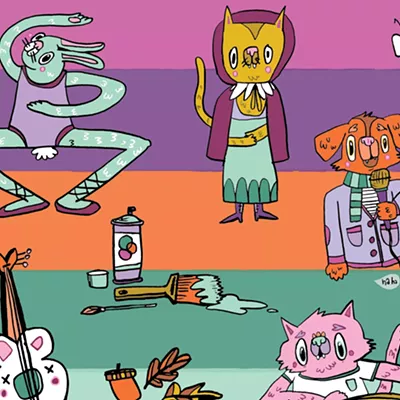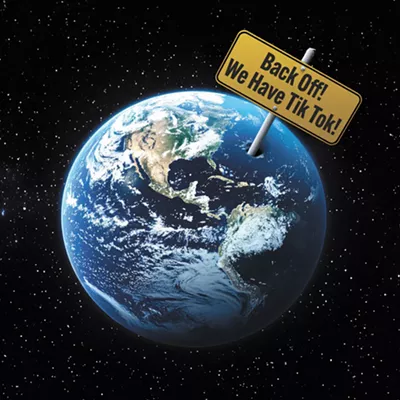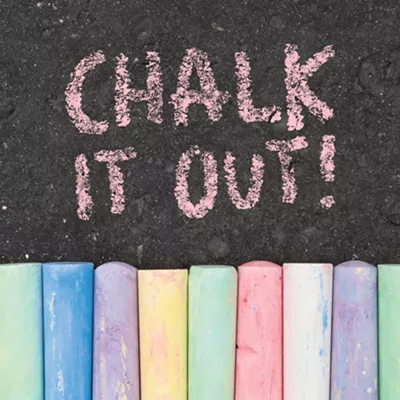My 11-year-old son recently reported with horror that the word "funner" has been added to the dictionary.
"What's wrong with that?" I asked.
He gaped. "IT'S NOT A WORD."
"Sure it is," I said. "Little kids say it all the time. And you know exactly what it means."
We stared at each other, aghast: I was raising a pedant, he was being raised by a ridiculous woman.
People tend to think that because I'm a writer, I must find joy in correcting people's language and grammar.
When I was younger, I did. As I teeter toward middle age, I find myself growing more and more liberal in regards to language (along with pretty much everything else).
Some egregious errors make me twitchy — I'm still recovering from a real estate listing for a $4 million mansion that used the phrase "two Livingroom's." But that's because of the wild mismatch of context and formality, not because an improper apostrophe is innately offensive.
You want to use silly acronyms in your text messages? Lol it up, friend. Add an exclamation point to the end of every sentence in an email? Go for it!!! Use "made up" words? Do what your readers understand, irregardless of what I think.
This isn't revolutionary. Descriptivist linguists make their careers out of studying the multitude of ways people use language, rather than chiding them for not following the rules. Because it turns out the rules are wildly subjective and often arbitrary.
In fact, I blame my conversion on my experiences teaching writing.
In the first class I ever taught, part of my task was to teach Associated Press Style, a set of rules so complex that it requires an updated several-hundred-page book every year — and yet still isn't 100 percent clear on how to do things like hyphenate "several-hundred-page book."
I backpedaled on every lesson plan I made. How many of these students would use AP Style after college? How many hours was I willing to sacrifice to instill in them the rules governing "four dogs" vs. "4-year-old" vs. "Fourth Street" vs. "4-foot fence," when I'd been using AP Style for 15 years and still had to look them up?
What would happen if my students thought I was judging their writing by their ability to follow rules?
I've heard well-meaning editors and teachers lay down maxims like "delete every instance of 'that'" (that's absurd) and "never end a sentence with a preposition" (I'll do it if I want to!) and "never use contractions in formal writing" (I'll have you know it's the year 2023 now, sir).
And I've met too many young writers who have tied themselves in knots trying to memorize some authority figure's pet peeves.
I've realized I care a whole lot more about whether my students' writing makes sense to the people who read it and fits the situation they're writing for. I want them to spend their energy getting their facts right and attempting to be interesting.
I teach a few AP Style rules — enough to get students to guess when to look things up — and give a lecture that can be summarized as "No one cares how you feel about commas, they only care whether you're using them the way they've paid you to." Then we move on.
Formal systems have their place. But when we treat rules like they have inherent value, we lose the point of writing.
Take, for instance, certain folks' handwringing over the use of "they" as a singular pronoun. The experts assure us that it's been common since the 14th century. Some who struggle with the idea are undoubtedly unlearning rules dictated to them as children.
But others who cry "I can't possibly say that, it's ungrammatical!" don't care about grammar at all. They're using rules the way humans have always loved to, as sneaky vehicles for hiding what they're really trying to do: mark some people as in and some people as out.
Language should be where humans are at our very best. It allows us to be silly and weird and creative and adventurous. It's where we can experiment with a word or idea that seems bizarre at first, then spreads through communities and cultures, connecting people through the joy and magic of writing something and having someone else walk away understanding it.
"Let go of the rules," I tell my son. "It'll be a whole lot funner if you do." ♦
Tara Roberts is a writer and educator who lives in Moscow with her husband, sons and poodle. Her novel Wild and Distant Seas is forthcoming from Norton in 2024. Follow her on Twitter @tarabethidaho.























